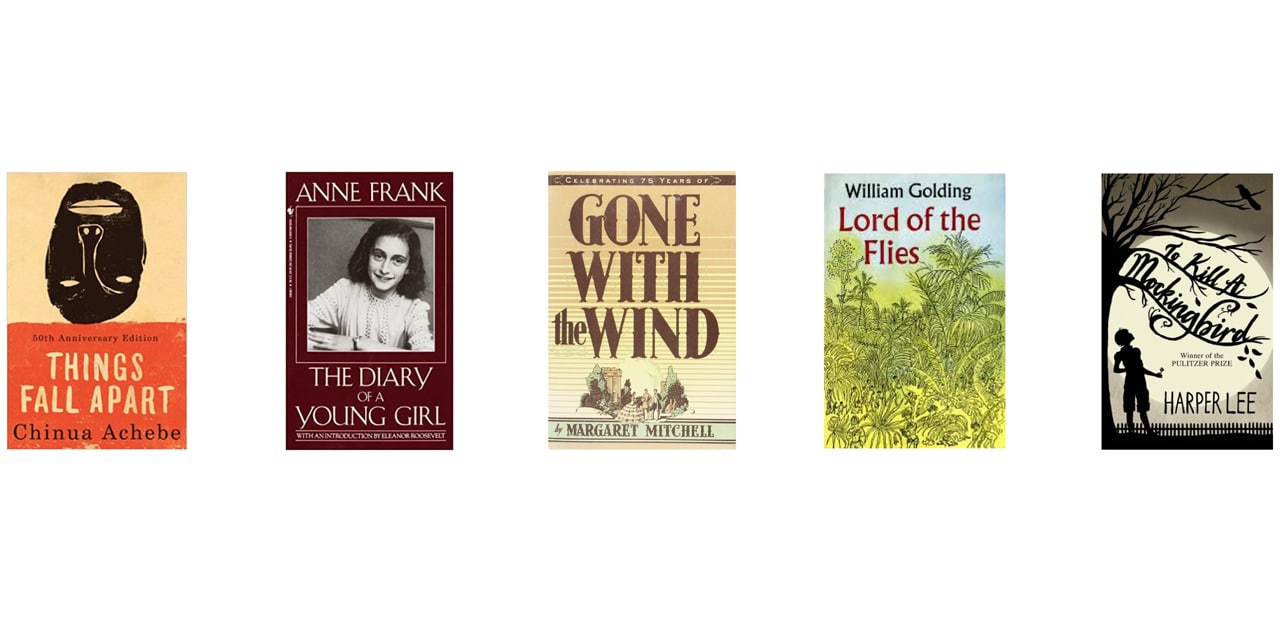Jackie Wilson Asheeke
I read Carmen Coetsee’s list of five books that reading junkies need to read at least once. Check out www.msn.com/en-za for her choices. I beg to differ on a few points, but a couple of her ideas inspired me.
Of course, any book list is subjective. Most of the ‘best books’ lists reflect the white, male, European or USA-centred perspective. There are books from the Asian, Hispanic and African cultures or in non-English languages, which would be equally great if they had the attention given to the others. Nevertheless, the books I note below tell wonderful stories and teach amazing lessons about life and human nature.
Gone with the Wind – by Margaret Mitchell
Published in 1936, the book is set during the American Civil war, this classic work tells the coming-of-age story of the selfish and scheming, Scarlett O’Hara, the daughter of a wealthy plantation owner, who had to do all she can to cope with the ravages of war and the effects of it on her family and herself.
This controversial book is a story from the perspective of the American South during the brutal racism of slavery. It has remained a firm fixture in literary studies throughout the world.
1984 – by George Orwell
Published in 1949, this dystopian and political novel has remained one of the most discussed and widely debated works of all time.
This novel centres around the consequences of mass surveillance and totalitarianism on human beings. Orwell tackles the roles of truth, facts, and assumptions within politics as well as the many ways these can be manipulated.
To Kill a Mockingbird by Harper Lee
Written in 1960, it is about the deep racism of the American South in 1930, where a black man (Tom Robinson), wrongly accused of the attempted rape of a white woman is convicted with no evidence (as usual). Atticus Finch is Tom’s lawyer. He is a strong and just lead character in the story. Side stories by the children of Atticus are inspiring (the book is narrated by ‘Scout’ Atticus’s daughter). If you haven’t read this book, read it.
The Lord of the Flies by William Golding
Published in 1954, the book focuses on a group of British boys stranded on an uninhabited island and their disastrous attempt to govern themselves. Themes include the tension between groupthink and individuality, between rational and emotional reactions, and between morality and immorality.
Things Fall Apart – by Chinua Achebe
Published in 1958, this remarkable debut novel by Nigerian author Chinua Achebe tells the story of pre-colonial life in Nigeria and the arriving European presence.
Considered as the quintessential African novel, this book follows the life of Okonkwo, a local wrestling champion, and details his family life, personal history, and eventually the influence of European colonialism on his life and his country.
The Diary of Anne Frank by Anne Frank
The Diary of a Young Girl (1947), also known as The Diary of Anne Frank, is a book of the memories, feelings and stories of the author, a young Jewish girl, while she and her family and others were in hiding for two years during the Nazi occupation of the Netherlands. The family was finally discovered by the genocidal Nazis in 1944, arrested and sent to death camps. (This is one of the most powerful stories I have ever read – Ed)
Of course, people must read the entire Lord of the Rings trilogy, and start with The Hobbit by JRR Tolkien. Any book by Toni Morrison would make my list of ‘must reads.’ One also has to consider The Last of the Mohicans (1862) by James Fenimore Cooper for a great books list.
Books by Mark Twain, Charles Dickens, Sun Tzu, Arthur Conan Doyle, Ernest Hemingway, Richard Wright, Gabriel García Márquez, Ken Follet, and Alex Haley are on my ‘greatest’ list.
Let me know what your ‘greatest’ books are! jw.asheeke@gmail.com.




